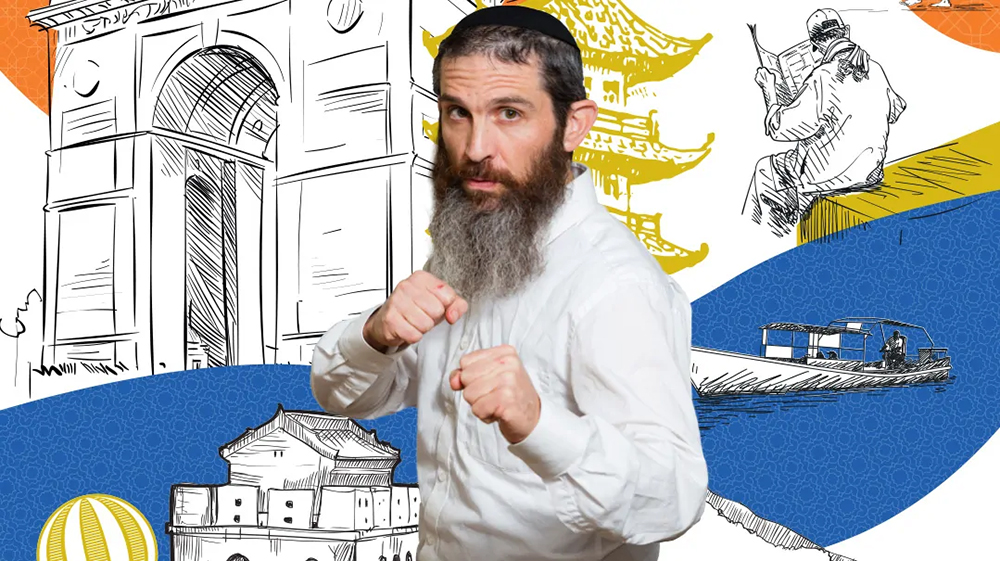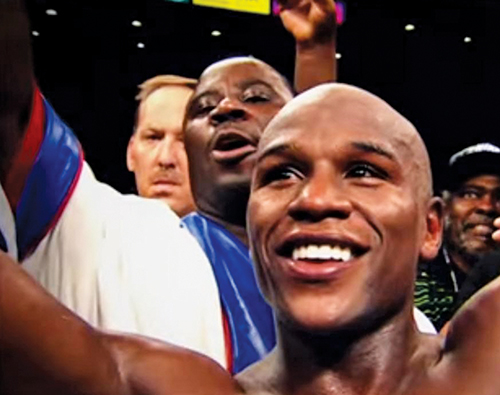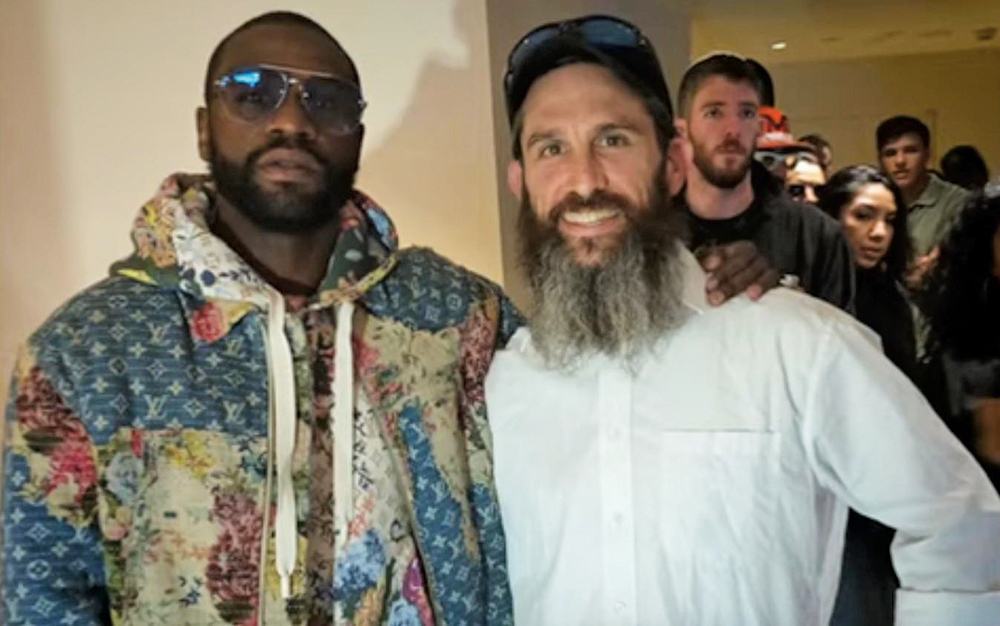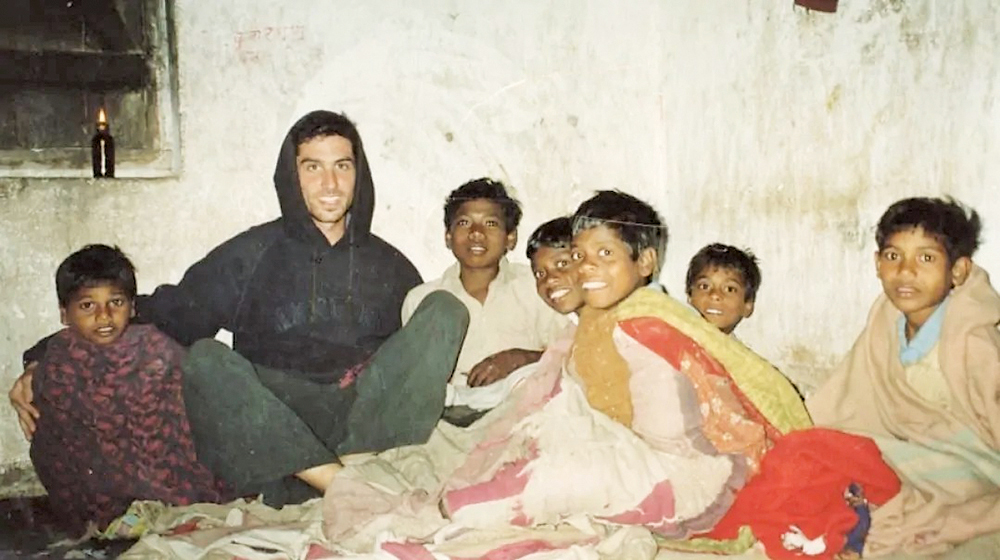
(Courtesy of PTI) What brought history’s top boxer, Floyd Mayweather, to the Kotel in Jerusalem? And how did his life change when, by chance, he came upon Rabbi Dov Ber Cohen of Aish HaTorah Yeshiva?
Rabbi Cohen will share these and other stories as part of the Yeshiva Ner Boruch-Passaic Torah Institute’s Young Professional series for men and women this Sunday, Feb. 4, at 7:30 p.m.
Born into a multigenerational boxing family, Mayweather was fitted with gloves as a baby and went on to win a record 50 fights with no losses and 12 world championships. He was one of the highest paid boxers, earning the nickname “Money” Mayweather.

Rabbi Cohen had a very different journey. When the London-born Dov Ber (aka Bradley) graduated from the University of Manchester in Eastern religions in 2001, he left with a backpack seeking the spirituality he thought could only be found in the Far East. He worked in destitute orphanages in Sri Lanka, participated in “silence retreats” in Thailand, fasted in India, meditated with the monks in the Himalayas, trained in martial arts in Japan and Korea, and even became a teacher of Buddhism.
In time, though, he began connecting with his Jewish roots and by the time he decided to settle in Eretz Yisrael in 2008, he was convinced that the Eastern wisdom he so diligently sought is actually rooted in Torah.
Today, he is one of Aish’s “star rabbis.” According to Ben Rand of PTI’s Young Professionals program, “He’s Torah on cocaine! When you listen to him you wonder why you get up in the morning, what you’re living for. He’s like a call to action for anyone looking to grow spiritually.”
His book, “Mastering Life: A Unique Guidebook to Jewish Enlightenment,” teaches that Judaism, lived in a more conscious way, provides all the depth, meaning, personal growth and spiritually that anyone could hope for.

Of working in an impoverished orphanage in Sri Lanka he said, “These children had one pencil between all of them, so I bought each of them a pencil. It was the best day of their life. By seeing their deprivation, I learned one of the fundamental secrets of happiness: conscious gratitude. Chazal knew this secret. We start our morning by saying Modeh Ani. Thank You Hashem. Our entire day is in the way we get up in the morning.”
In Thailand, while living with Buddhist monks, he attended a 10-day silent meditation retreat. “There was no reading, no writing, no phones, no talking — nothing. Just you and your mind,” he said. He realized that a person has the ability to totally control the mind, and that you can choose your reaction to circumstance rather than be dictated by it. “In the Shema it says ‘Don’t be a victim to your thoughts and desires.’ In Pirkei Avos we’re taught, ‘Who is a strong person? The one who can control his thoughts and emotions.’ Are you going to be a victim? Or are you going to try to find meaning in life’s pain? How can I grow from this? And when we can’t find meaning, there’s bitachon that meaning exists even if we can’t see it.”
In Korea, Rabbi Cohen embarked on intensive training in martial arts with a national Taekwondo champion. Training involved running up a volcano in the snow, side-kicking wooden boards in half, jumping off walls, spinning in the air to kick a board and then landing on the same foot, punching out candles without touching them, and many other exercises that demand extreme mental focus and precision.
Still, after six years in Asia, Rabbi Cohen had no idea that he could find this spirituality in his own backyard. Before taking his adventure to South America, he took a side trip to Israel where he started learning about the depth and spirituality of Yiddishkeit for the first time. Eventually he found his way to Aish.
Judaism, he explained, has an ancient meditation tradition to achieve “mindfulness” — to calm one’s mind in order to train ourselves in emunah, in bitachon, in the idea that everything is from Hashem, and at that level, it’s impossible to feel doubt, anxiety, anger, hate, or jealousy.
“Mindfulness,” he continued, “means being here, exactly where Hashem put you at the moment.”

The Kotel was exactly where Hashem put boxer Mayweather and Rabbi Cohen at the same moment. Mayweather asked the rabbi where the Kotel was and he took him to a beautiful view overlooking it from his office. After gazing at its glory, Mayweather asked, “Where are all the great men here, man?” perhaps hoping he’d be counted in their ranks.
Like any good rabbi, Cohen answered a question with a question. “But what makes a man great, Floyd?” “Money” the answer was. “Currency over legacy, man!” For Mayweather, money was more important than making a difference in the world.
Rabbi Cohen showed him the difference between a great boxer who wins by taking advantage of others’ weaknesses, and a great man who uplifts everybody, like a rising tide lifts all boats. He showed how Israel’s achievements and contribution to the world far outweigh its tiny size. One of Mayweather’s entourage said he’d never seen him listen so intently to someone else speaking. After a very long silence, the boxer agreed. It inspired him to start The Floyd Mayweather Jr. Foundation (TFMJF), which ensures health and educational services to underserved communities.
Said Rabbi Cohen, “when you have a job in This World: It’s not about what you’re doing with your life, but who you’re being when you’re doing it. Just going through the motions will never achieve that. Every decision you make, ask: Is this making me a better person or helping me improve the world?”
PTI is located at 441 Passaic Ave. in Passaic. For information, call Rand at (201) 280-8145.
(Some excerpts from Mishpacha magazine by Arthur Lypszic, Issue 958)








